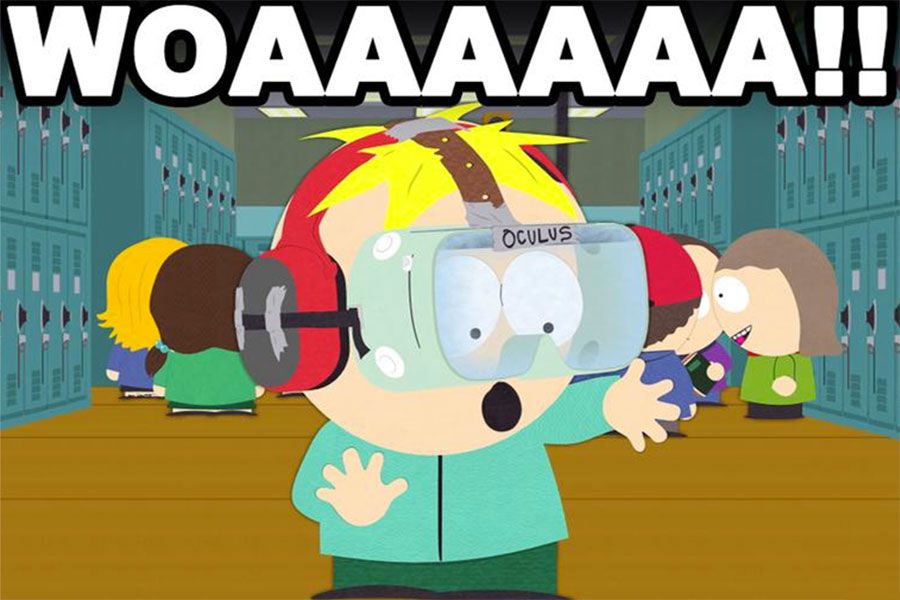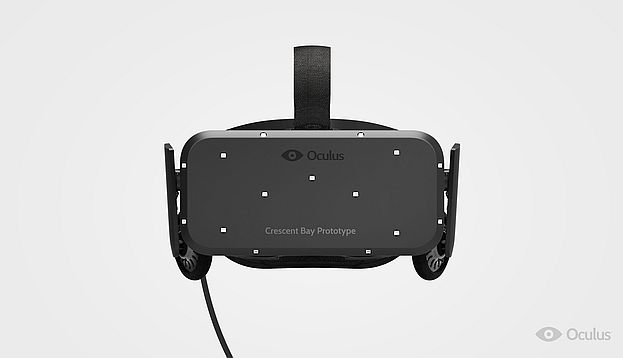Oculus’ chief scientist Michael Abrash took the stage at Facebook’s F8 developer’s conference to talk about virtual reality (VR) and why you should be excited by it. Why is Facebook interested in VR Because their mission is to help people share experiences, and VR offers some very compelling experiences.
Abrash quoted from The Matrix: “Real is just electrical signals interpreted by your brain.” said Morpheus. He’s right, Abrash opined, showing a number of illusions to verify to the audience that “reality is constructed by our minds, rather than recorded by our senses . . . Our experience of the world is an illusion, one that has been highly honed . . . All reality is virtual.”
The technology has advanced to the point where we can now hack your perceptions and create compelling illusions. “VR is about driving our perceptions the way they are made to be driven. It’s more real than movies,” Abrash said. VR is now good enough to create this effect, but there’s plenty of room for improvement. That’s why the future is so bright, in Abrash’s view. He provided three main reasons to support this contention:
- VR is already compelling and shipping soon
- There is broad industry participation
- There is long-term commitment to VR
Once Facebook acquired Oculus, the long-term commitment issue was no longer in doubt. What does it all mean to Abrash He sees VR as the next major paradigm shift in tehcnology, perhaps even exceeding ultimately the impact of the Internet and smartphones. It will be a long time before its potential is fulfilled, but it’s well on the way. “VR has the potential to change almost everything about the way we live. No one knows how movies will work or what a Facebook Wall will look like. Sooner or later you will want to be a part of it . . . I’m hoping it’s sooner,” Abrash concluded.

The takeaway from Michael Abrash’s talk on VR at Facebook’s F8 is straightforward: VR is coming, and it has the potential to transform society worldwide. Exactly what shape this will take, it’s far too early to tell. Of course, developers will help shape that future… as will marketers.
Is it too early for marketers to begin considering VR Not at all, as the process is already under way. We’re seeing VR films under development, and plenty of VR games are being worked on. How are these VR experiences going to be promoted. How will people be informed and persuaded Beyond the technology itself, how can VR transform industries or create brand awareness.
For one thing, while the technology is in its early stage there’s opportunity for brands to associate with this exciting new leap. Sponsoring a VR production is one way, and so is using VR to demonstrate at conventions (as film production companies did at ComicCon last year). On the game front, CCP is getting a lot of attention for its EVE Valkyrie VR demo.
For game developers of all sizes, though, Sony’s Project Morpheus looks like a good place be. We already know the time frame (early 2016), and Sony’s got all the pieces in place: it’s driven by the best-selling PS4 console, they have controllers already, and of course the PlayStation Network for distribution. Testing the waters of VR for game developers is a matter of resource, and right now it looks like Sony will make it pretty easy to get into this new medium.
It’s time, though, to start thinking about how VR experiences will be monetized, and where opportunities may lie for advertising. Yes, you don’t want to interrupt someone’s VR experience with an ad . . . all the more reason to get creative now about how an advertiser might be involved in the magic of VR. How about a cool experience brought to you by Marriott? Or a VR experience that takes place partly in a Marriott facility? Or even just the product placement of seeing a Marriott hotel in the Martian landscape as you drive by, pursuing an alien menace across the drifting red sands, under the hurtling moons of the future Barsoom.
Abrash is right to say that we know VR will happen this time, given the technology and the level of commitment already shown. That means it’s time for the creatives to start making dreams into reality, and shaping the future of VR and AR. That’s as much the purview of marketers as it is filmmakers and game designers. Any technology that will have this broad an impact is going to mean massive challenges and opportunities in advertising and marketing, and the prizes go to those who act early with creativity and intelligence.

